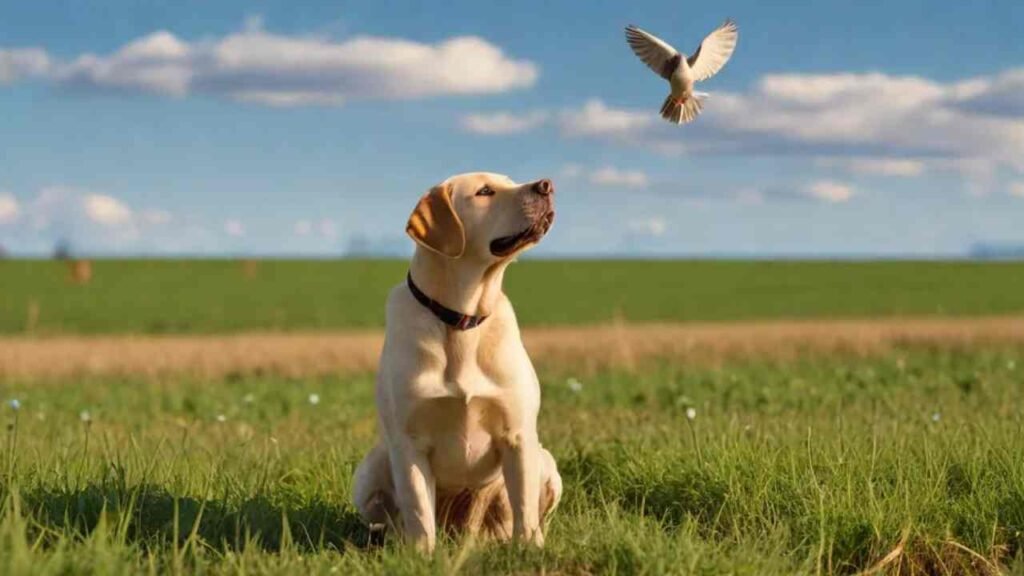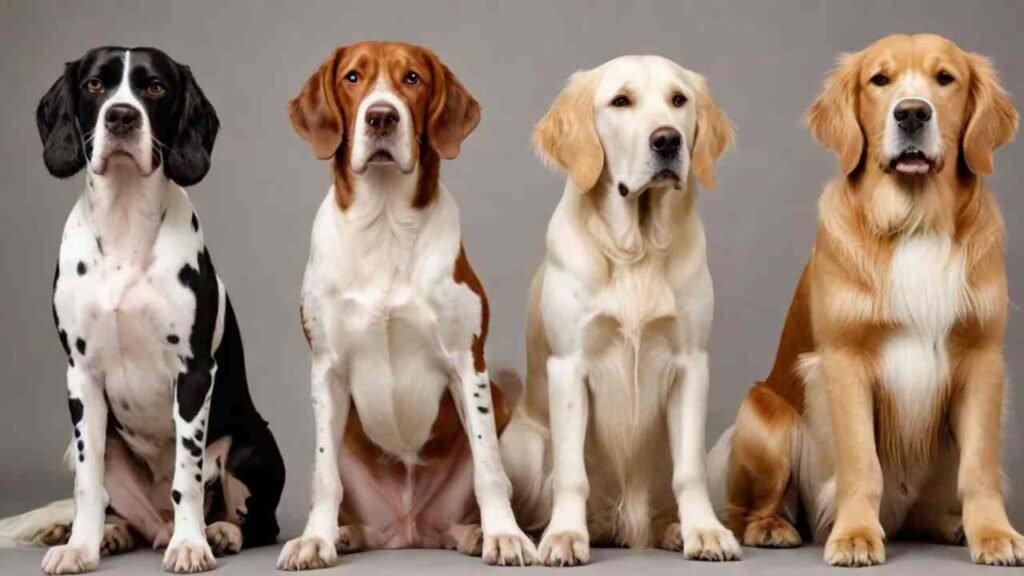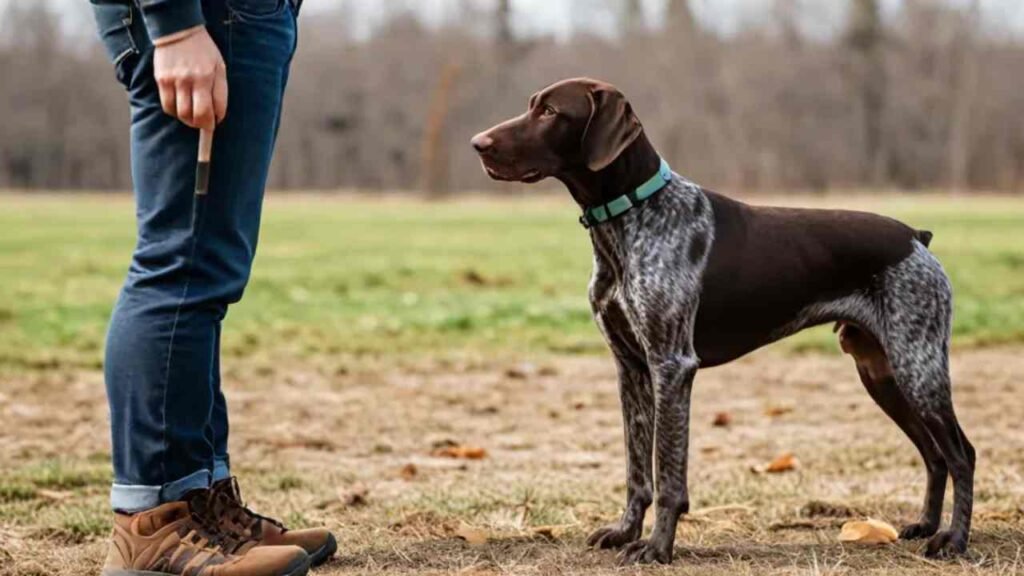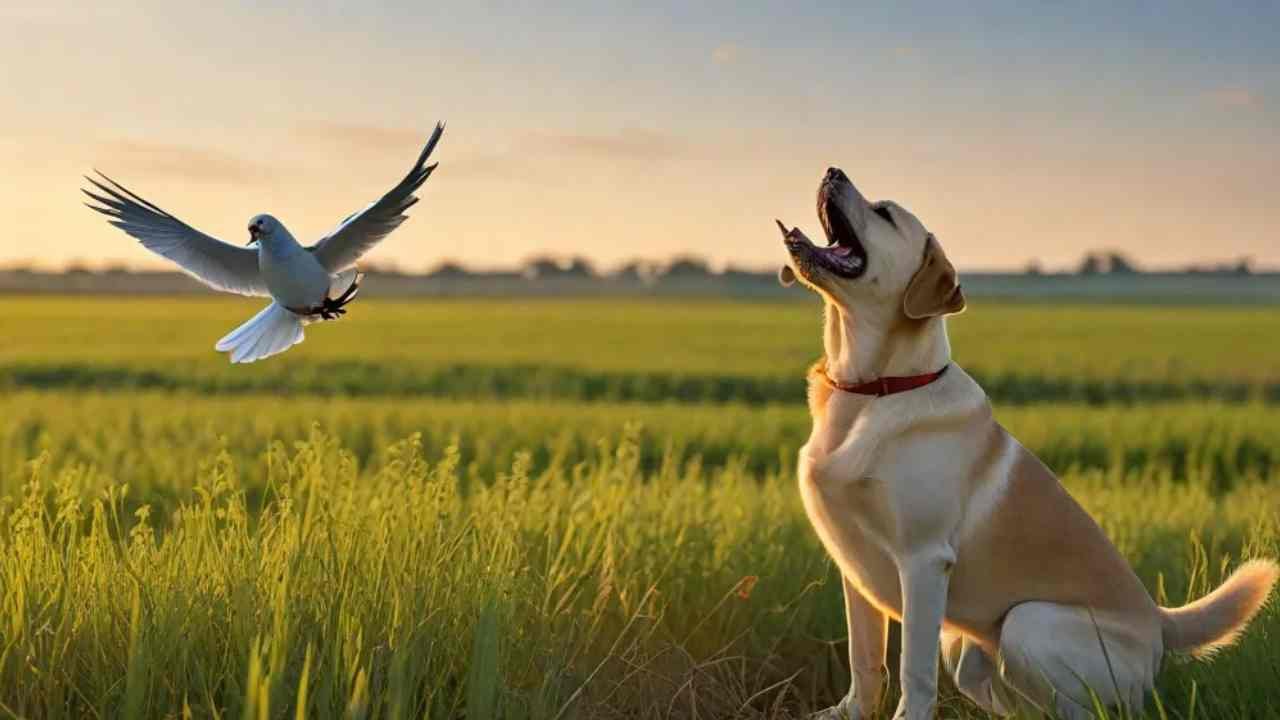Once summer ends, hunters in United States look forward to dove season. It’s a thrill to pursue these fast, agile birds. But, a good-behaved dog can be really helpful. Picking the perfect dog breed for dove hunting can be tough as various dogs are great at different games. This guide has details about dog breeds for dove hunting, key training, and handy hints for a fun and successful dove season with your dog.
Ideal Dove Hunting Dog Breeds
The ideal dog for dove hunting hinges on a few things. One, your favorite way to hunt. Two, the type of landscape you usually hunt in. Let’s take a closer look at three main things you need to think about:

1. Pointing Breeds:
- Breeds: English Pointer, German Shorthaired Pointer (GSP), Wirehaired Pointing Griffon
These lively dogs have a strong sense of smell and a remarkable ability to track down doves and “point” them out. They stay perfectly still to alert their handler. Pointing breeds excel in open spaces. They see remarkably well, allowing them to scan large areas fast. Also, these dogs have tons of energy, ideal for lengthy hunting journeys.
2. Flushing Spaniels:
- Breeds: American Cocker Spaniel, English Springer Spaniel
Flushing spaniels are energetic and love to explore thickets. Different from pointing breeds, they can easily spook camouflaged doves, making them ideal for hunting in overgrown or forested landscapes. Their nimbleness ensures smooth sailing through tough terrains.
3. Retrievers:
- Breeds: Labrador Retriever, Golden Retriever
People know Retrievers for their soft mouths and inborn fetching senses. Even if they weren’t originally used to find birds, they are super smart and aim to please. This makes them great for a dove pursuing group, most notably to fetch fallen birds.
Selecting the Right Dog
Don’t just look at breed traits when picking your hunting dog. Think about these things too:
- Hunting Style and Terrain: For big, open areas, a pointer like a GSP could be great. For thick bushes and undergrowth, a Springer Spaniel, which is a flusher, could be perfect.
- Temperament: If you’re new to this, choose a laid-back, easy-to-train breed like a Lab. If you’re more experienced and active, go for a high-energy breed like a GSP.
- Puppy vs. Adult Dog: Puppies can be trained to suit your hunting style, but they need a good deal of time and patience. Adopting older, experienced dogs could be wonderful, even though they might be somewhat harder to train.

Comparison of Ideal Dove Hunting Dog Breeds
| Trait | Pointing Breeds | Flushing Spaniels | Retrievers |
|---|---|---|---|
| Specialization | Pointing | Flushing | Retrieving |
| Temperament | High-energy, Alert | Energetic, Eager to Please | Trainable, Gentle |
| Trainability | Moderate | High | High |
| Ideal Terrain | Open Fields | Dense Cover | Varied Terrain |
| Examples | English Pointer, GSP | American Cocker Spaniel, Springer Spaniel | Labrador Retriever, Golden Retriever |
Training Your Dog
Having a trained dog can be a boon when dove hunting. Here are the key training steps: Basic Commands:
- Basic Obedience Training: Simple commands like “Sit,” “Stay,” and “Come” offer control and safety. You might want to put your dog in a professional class for a solid start.
- Gun Dog Training Fundamentals: Begin your dog’s exposure to birds and gun sounds slowly. Always use positive encouragement like treats and compliments. Start with training birds that have little scent to prevent your pet from getting overwhelmed. Boost the training level as your it gets better.
- Specialization for Dove Hunting: Start doing wing-shooting exercises. These mimic the unsteady flight of doves. Teach your dog to mark fallen birds, helping them learn to spot where birds have landed.

Basic Obedience Commands for Dove Hunting Dogs
| Command | Description | Importance |
|---|---|---|
| Sit | Sits on command | Enables command and clarity in field instructions. |
| Stay | Remains in position until released | Promotes safety during bird flushing or approaching fallen doves. |
| Come | Returns to handler on command | Sustains control, letting you recall your dog if required. |
| Heel | Walks beside handler at heel | Keeps your dog nearby, stopping them from disrupting your shots. |
Successful Dog-Hunted Dove Season Tips
Getting ready in advance helps ensure that dove season with your pooch goes smoothly and remains fun. Here are three tips:
- Proper Conditioning and Exercise: Dove hunting needs lots of walking. So, prep your dog by upping their exercise gradually as the season nears.
- Utilize Blinds and Decoys Effectively: Secondly, smart use of hunting concealment and bird models can aid. Safely tucked away in these hides, your dog can enhance their sense of pointing and flushing. Bird models that look like doves pull in more real birds – giving your pet more chances to show off their abilities.
- Develop a Strong Bond and Communication: Lastly, foster a powerful bond with your dog. A solid relationship grounded in trust and communication boosts game efficiency. Aside from hunting, spend good time with your dog. In outdoor scenarios, utilize easy-to-understand hand gestures and voice commands effectively.
Training Schedule for a Dove Hunting Dog
| Week | Focus | Activities |
|---|---|---|
| 1-4 | Basic Obedience | Leash training, Sit, Stay, Come, Heel |
| 5-8 | Gun Dog Introduction | Start with birds (either winged or stuffed decoys) and low-level gunfire sounds, rewarding good behavior. |
| 9-12 | Introduce Hunting Scenarios | Then, add bird calls and simulated hunts in managed conditions. |
| 13-16 | Advanced Training | Practice wing-shooting, marking where birds fall, and getting used to hunting blinds. |
| 17+ | Field Practice | Finally, go on short outdoor trips, slowly making them longer and more challenging. |
Training Gear
| Training Gear | Use Case |
|---|---|
| Clicker | Encourages good actions with rewarding training. |
| Training treats | During the lessons, good behaviors get treats. |
| Dummy birds | Pretend birds help learn how to find and bring back stuff. |
| Hunting whistle | Gives a steady, silent signal for chit-chat on the field. |
Conclusion
Choosing and training the perfect dove hunting dog requires careful consideration of breed characteristics, your pursuing style, and your dog’s temperament. By investing the time and effort into training, you’ll develop a reliable canine companion that enhances your dove hunting experience. Remember, the most rewarding aspect is the camaraderie and shared success you achieve as a team. So, get out there, enjoy the crisp autumn air, and create lasting memories with your furry friend by your

